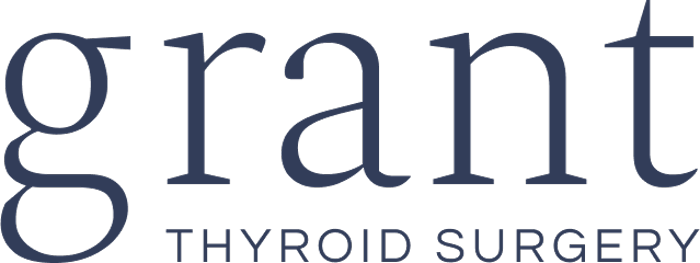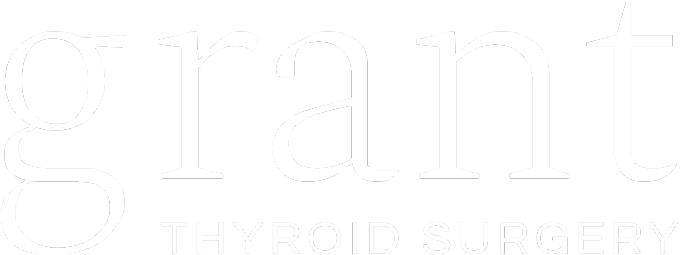Parathyroidectomy is a surgical procedure used to treat conditions like hyperparathyroidism and parathyroid adenoma by removing overactive parathyroid glands. At Grant Thyroid Surgery, Dr. David Grant—a fellowship-trained head and neck surgeon—offers expert care with personalized attention to help restore calcium balance and long-term hormonal balance.
What Is Parathyroidectomy?
Parathyroidectomy in Fayetteville is the surgical removal of one or more parathyroid glands, typically performed to treat the overactivity of these glands (hyperparathyroidism). This condition can lead to elevated calcium levels in the blood, resulting in symptoms such as fatigue, bone pain, kidney stones, and cognitive changes. The goal of the procedure is to remove the abnormal gland(s) while preserving normal parathyroid tissue. Dr. Grant uses advanced surgical techniques to treat parathyroid disorders and restore healthy calcium regulation.

Potential Reasons to Consider Parathyroidectomy:
- Persistent high calcium levels despite medical management
- Diagnosis of primary hyperparathyroidism
- Presence of a parathyroid adenoma
- Development of kidney stones due to elevated calcium
- Bone loss or osteoporosis linked to overactive glands
- Neurological symptoms such as confusion or memory issues
- Chronic fatigue or muscle weakness related to calcium imbalance
- Abnormal parathyroid hormone (PTH) levels with associated symptoms
Restore Normal Calcium Levels in Your Body
When the parathyroid glands are overactive, they release excessive parathyroid hormone (PTH), which causes calcium to be pulled from your bones into the bloodstream. Over time, this can lead to weakened bones, increased fracture risk, kidney stones, and other complications. Parathyroidectomy directly addresses the root cause by removing the abnormal gland(s), helping to stabilize calcium levels. This not only protects your bones and kidneys but also alleviates symptoms such as fatigue, muscle weakness, and mental fog.
Benefits of Parathyroidectomy:
- Resolves the underlying cause of elevated calcium through parathyroidectomy in Fayetteville
- Reduces the risk of kidney stones and kidney damage
- Improves bone density and reduces fracture risk
- Alleviates symptoms like fatigue and muscle weakness
- Enhances memory, focus, and overall mental clarity
- Eliminates the need for lifelong medication in many cases
- Provides a definitive solution for primary hyperparathyroidism
- Allows for targeted treatment with minimal disruption to surrounding tissue

How Is Parathyroidectomy Done?
Parathyroidectomy in Fayetteville is performed under general anesthesia. Dr. Grant makes a small 2 to 4-cm incision at the lower front of your neck, just above the collarbone, to access the parathyroid glands, which are located behind the thyroid. Using dissection techniques, he removes the overactive gland(s) while preserving vital structures such as the recurrent laryngeal nerve and remaining healthy parathyroid tissue. Intraoperative parathyroid hormone (PTH) monitoring is often used to confirm that PTH levels drop appropriately after gland removal.
Recovery After Parathyroidectomy
After your parathyroidectomy, you can typically return home the same day. You may experience mild neck soreness or a hoarse voice, which usually resolves within a few days. Most patients resume normal activities within a week after their parathyroidectomy in Fayetteville. Dr. Grant will monitor your calcium levels closely, as they may temporarily drop after surgery. You might be prescribed calcium supplements during this adjustment period. The small neck incision heals quickly, often leaving a minimal scar.
Parathyroidectomy FAQs
Will I Need All Four Parathyroid Glands Removed?
No—most patients only have one overactive gland, known as a parathyroid adenoma. In such cases, only the affected gland is removed. If more than one gland is abnormal, Dr. Grant may remove multiple glands while leaving enough healthy tissue for calcium regulation.
How Successful Is Parathyroidectomy?
When performed by a skilled surgeon, parathyroidectomy has a cure rate of over 95% for primary hyperparathyroidism. Most patients experience rapid improvement in symptoms and stabilization of calcium and parathyroid hormone levels shortly after surgery.
Will I Need Calcium Supplements After Surgery?
You may be advised to take calcium supplements for a short period after surgery, especially if your body has been depleted of calcium due to prolonged high PTH levels. Dr. Grant will monitor your calcium and PTH levels and guide your supplement needs accordingly.
Does the Scar Fade Over Time?
Yes—the small incision is strategically placed and typically heals well. Most patients are left with a thin, barely visible scar that fades significantly over several months.

Schedule Your Consultation With Dr. Grant
Dr. David Grant is a fellowship-trained head and neck surgeon with advanced expertise in parathyroid surgery and endocrine disorders. At Grant Thyroid Surgery, every aspect of your care—from diagnosis to recovery—is carefully coordinated to minimize stress and maximize outcomes. If you’re experiencing symptoms of hyperparathyroidism or have been advised to consider surgery, schedule your consultation for parathyroidectomy with Dr. Grant today.

